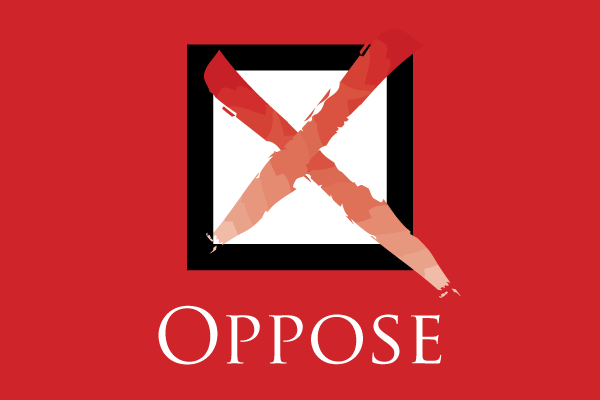
The California Assembly this week passed a California Chamber of Commerce-opposed bill that exposes employers to costly litigation for inquiring into an applicant’s prior salary even when there is no harm.
Sent to the Senate on a vote of 60-9 was AB 168 (Eggman; D-Stockton), which also penalizes employers for failing to provide a pay scale upon demand, even though the employee has not suffered any harm or wage loss as a result of the violation.
In opposing AB 168, the CalChamber and a coalition of employers pointed out that the bill creates hurdles in the hiring process and already is addressed by existing law.
Current Law
Last year, the business community negotiated language on a similar proposal to ensure that an employer could not base an applicant’s or employee’s compensation solely on prior salary (AB 1676; Campos; D-San Jose; Chapter 856). AB 1676 was signed and went into effect on January 1, 2017.
The Legislature should allow this new law to have an impact before banning any inquiry into an applicant’s salary history.
Salary Data: Legitimate Uses
The CalChamber letter noted that there are several legitimate, nondiscriminatory reasons employers seek information about an applicant’s prior compensation.
For example, employers do not necessarily have accurate wage information on what the current market is for all potential job positions. In fact, employers in competitive industries do not advertise salaries in order to utilize their pay structure as a way in which to lure talented employees from their competition.
By requesting salary information, employers can adjust any unrealistic expectations or salary ranges to match the current market rate for the advertised job position. This has worked to the benefit of the applicant/employee.
In addition, salary data can be used as a reference regarding whether the employee’s expectations of compensation far exceed what the employer can realistically offer. Requiring both the applicant and employer to waste time on the interview process which, for highly compensated employees, could be lengthy, to ultimately learn at the end of the process that the employee would never consider taking the compensation offered is unnecessary.
Although AB 168 allows an employee to request a pay scale for the specific position, that mandate raises concerns as well.
As set forth above, an employer may assume a pay scale accurately captures the current market for a specific position, yet could be wrong. Disclosing a pay scale could artificially limit an applicant’s interest in a position.
Employers determine the appropriate wage and salary to pay an applicant based upon various factors, including skill, education and prior experience, as well as the funding available for the job. Employers may feel compelled to enlarge the pay scale in order to create sufficient room to adjust that rate depending on the various factors and varied candidates for the job. Such a broad pay scale will not assist an applicant in negotiations.
Disclosure of wage rates or pay scales has not been proven to address gender equity pay. A March 28, 2015 Sacramento Bee article detailed findings that, despite disclosing actual compensation of all employees, women staffers in the California Legislature make less then male staffers.
Current Protections
In addition to AB 1676 enacted just last year to preclude an employer from basing an applicant’s or employee’s compensation solely on prior salary, Labor Code Section 1197.5 was just amended by SB 358 (Jackson; D-Santa Barbara; Chapter 546) in 2015 to mandate an employer provide equal wages for substantially similar work.
The CalChamber supported SB 358 after it was amended to clarify ambiguous standards, balancing the payment of equal wages for substantially similar work with maintaining an employer’s ability to control the workforce and pay higher wages for legitimate reasons other than gender.
Moreover, Labor Code Section 232 precludes an employer from preventing an employee from disclosing his or her wages.
The Fair Employment and Housing Act (FEHA) precludes any discrimination in the workplace based upon various protected classifications, including gender.
Added Litigation Avenue
As a part of the Labor Code, AB 168 exposes employers to costly litigation under the Labor Code Private Attorneys General Act (PAGA). Exposing employers to additional threats of litigation, even when the employer pays an applicant equal wages as other employees, is simply unfair.
For example, under AB 168, if an employer asks an employee about his or her prior salary, yet ultimately pays the applicant a higher salary than any of the applicant’s male colleagues, that employer still could be sued under PAGA for penalties and attorney’s fees. It is unfair to expose employers to this costly litigation, especially when no harm has occurred to the individual applicant or employee.
Key Vote
The Assembly voted 60-9 on May 22 to send AB 168 to the Senate:
Ayes: Acosta (R-Santa Clarita), Aguiar-Curry (D-Winters), Arambula (D-Kingsburg), Baker (R-San Ramon), Berman (D-Palo Alto), Bloom (D-Santa Monica), Bocanegra (D-Pacoima), Bonta (D-Oakland), Burke (D-Inglewood), Caballero (D-Salinas), Calderon (D-Whittier), Cervantes (D-Riverside), Chau (D-Monterey Park), Chávez (R-Oceanside), Chiu (D-San Francisco), Chu (D-San Jose), Cooley (D-Rancho Cordova), Cooper (D-Elk Grove), Cunningham (R-Templeton), Dababneh (D-Encino), Dahle (R-Bieber), Eggman (D-Stockton), Flora (R-Ripon), Frazier (D-Discovery Bay), Friedman (D-Glendale), C. Garcia (D-Bell Gardens), E. Garcia (D-Coachella), Gipson (D-Carson), Gloria (D-San Diego), Gomez (D-Los Angeles), Gonzalez Fletcher (D-San Diego), Grayson (D-Concord), Holden (D-Pasadena), Jones-Sawyer (D-South Los Angeles), Kalra (D-San Jose), Lackey (R-Palmdale), Levine (D-San Rafael), Limón (D-Goleta), Low (D-Campbell), Maienschein (R-San Diego), Mathis (R-Visalia), McCarty (D-Sacramento), Mullin (D-South San Francisco), Quirk (D-Hayward), Quirk-Silva ((D-Fullerton), Rendon (D-Paramount), Reyes (D-Grand Terrace), Ridley-Thomas (D-Los Angeles), Rodriguez (D-Pomona), Rubio (D-Baldwin Park), Salas (D-Bakersfield), Santiago (D-Los Angeles), Steinorth (R-Rancho Cucamonga), M. Stone (D-Scotts Valley), Thurmond (D-Richmond), Ting (D-San Francisco), Voepel (R-Santee), Waldron (R-Escondido), Weber (D-San Diego), Wood (D-Healdsburg).
Noes: T. Allen (R-Huntington Beach), Brough (R-Dana Point), Choi (R-Irvine), Gallagher (R-Yuba City), Gray (D-Merced), Harper (R-Huntington Beach), Melendez (R-Lake Elsinore), Obernolte (R-Big Bear Lake), Patterson (R-Fresno).
No vote recorded: Bigelow (R-O’Neals), Chen (R-Walnut), Daly (D-Anaheim), Fong (R-Bakersfield), Irwin (D-Thousand Oaks), Kiley (R-Granite Bay), Mayes (R-Yucca Valley), Medina (D-Riverside), Muratsuchi (D-Torrance), Nazarian (D-Sherman Oaks), O’Donnell (D-Long Beach).

